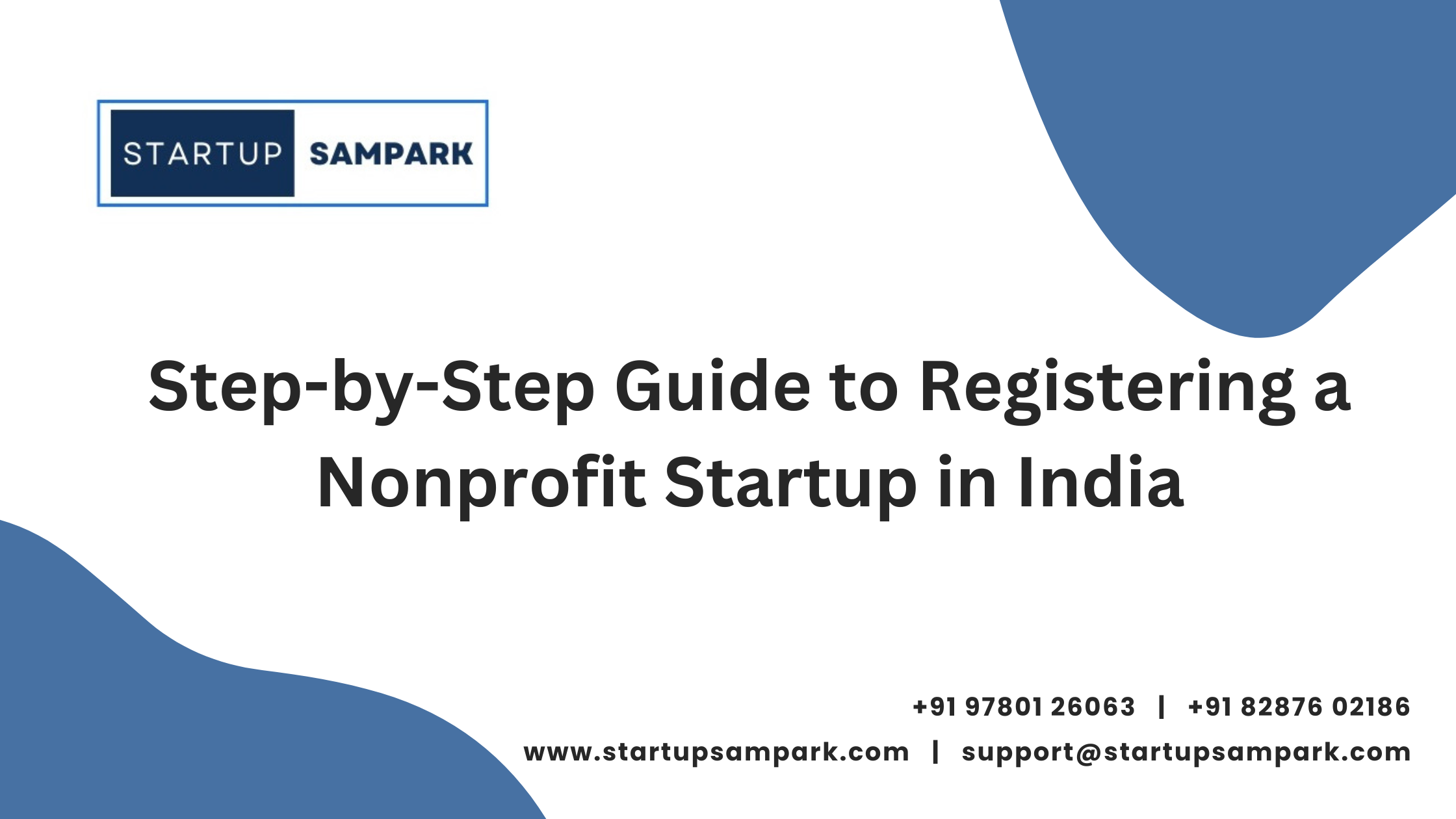Step-by-Step Guide to Registering a Nonprofit Startup in India
The Importance of Nonprofit Registration in India
Registering a nonprofit startup in India is a vital step for ensuring that the organization operates legally and can attract funding, donations, and government grants. Nonprofits can include a wide variety of entities such as charitable trusts, societies, and Section 8 companies (non-profit companies). Each of these entities is governed by different laws and regulations. Understanding the process of registering a nonprofit organization in India is crucial for entrepreneurs and social entrepreneurs who wish to contribute to social causes, such as education, healthcare, or environmental sustainability. This step-by-step guide will walk you through the process of registering a nonprofit startup in India, ensuring that you comply with all the necessary legalities.
Choosing the Type of Nonprofit Entity
The first step in registering a nonprofit startup in India is choosing the appropriate legal structure. There are primarily three types of nonprofit organizations in India:
- Society: A society is usually formed for the promotion of literature, science, art, charity, religion, or education. It requires a minimum of seven members and is registered under the Societies Registration Act, 1860.
- Trust: A charitable trust is established for the welfare of the public and is regulated under the Indian Trusts Act, 1882. It requires at least two trustees, and its focus is typically on social welfare and charitable activities.
- Section 8 Company: A Section 8 company is a nonprofit company formed under the Companies Act, 2013. It is ideal for organizations seeking to raise capital, register as a company, and operate with more formal governance.
Each of these structures has its own advantages and is suited for different purposes. Choosing the right structure will depend on factors such as the scale of operations, the scope of activities, and the level of formalization needed.
-
 Startup Registration (DPIIT Recognition)₹8,850.00
Startup Registration (DPIIT Recognition)₹8,850.00
Drafting the Memorandum and Articles of Association (MOA and AOA)
Once you have decided on the type of nonprofit entity, the next step is drafting the Memorandum of Association (MOA) and Articles of Association (AOA), particularly for a Section 8 company. These documents outline the organization’s objectives, governance, and operational structure. The MOA defines the purpose of the nonprofit, such as promoting education, healthcare, or poverty alleviation, while the AOA lays down the rules and regulations governing the internal operations of the nonprofit. It is essential to ensure that these documents clearly reflect the nonprofit nature of the organization, as they will be scrutinized by the Registrar of Companies (RoC) or other regulatory bodies.
For a trust or society, similar foundational documents are required, such as the trust deed or the society’s rules and regulations, which should detail the operational goals, trustee responsibilities, and member rights.
Filing the Registration Application with the Relevant Authorities
The next step is to file the registration application with the relevant authority depending on the entity type. For societies, the application must be submitted to the Registrar of Societies in the state where the organization will operate. For charitable trusts, the application is typically submitted to the local Registrar of Trusts or the District Judge. A Section 8 company must submit an application to the Ministry of Corporate Affairs (MCA), which includes submitting the prescribed forms, documents, and application fees.
The key documents required for registration generally include the MOA, AOA, proof of identity and address of the directors or trustees, the details of the proposed activities, and the organization’s financial plan. It’s important to ensure that all these documents are accurate and in compliance with the law to avoid delays or rejections.
Obtaining Tax Exemption and Other Licenses
After successfully registering the nonprofit entity, the next step is to apply for tax exemptions and relevant licenses. Nonprofits in India can benefit from tax exemptions under Section 80G of the Income Tax Act, which allows donors to claim deductions for their donations to a registered charity. To obtain this exemption, the organization must apply to the Income Tax Department by submitting an application along with relevant documents such as the registration certificate, MOA, AOA, and details of the nonprofit’s operations.
In addition, a nonprofit organization may need other licenses or certifications, such as FCRA (Foreign Contribution Regulation Act) registration if it plans to receive foreign donations or grants. Obtaining these approvals ensures that the nonprofit complies with all legal requirements and is eligible for fundraising.
Complying with Ongoing Legal and Regulatory Requirements
Once your nonprofit is registered, it is essential to maintain compliance with ongoing legal and regulatory requirements. These include regular filing of annual returns with the relevant authorities (such as the MCA for Section 8 companies), maintaining financial transparency, and ensuring adherence to the nonprofit’s objectives as mentioned in the MOA and AOA. Failure to comply with these legal obligations can lead to penalties, loss of tax exemptions, or even de-registration of the entity.
Additionally, nonprofit organizations must maintain proper records, undergo periodic audits, and ensure that their activities align with the charitable goals set out during registration. By adhering to these requirements, nonprofits can operate successfully while contributing to their intended social causes.
Startup, India
-
 Startup Registration (DPIIT Recognition)₹8,850.00
Startup Registration (DPIIT Recognition)₹8,850.00















Post Comment